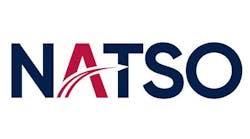The market for equipment that cuts emissions and reduces idling will experience considerable growth due to imminent government regulations, according to “Strategic Analysis of Emission and Idling Reduction Technologies for EPA 2010 and Idling Regulations Compliance,” a new report from market analysts Frost & Sullivan.
The report states that fuel efficiency worries, dependency on foreign oil, air quality deterioration and global warming will be among the factors that spur regulations, offering companies an opportunity to create new revenue streams by developing new green solutions to minimize emissions concerns.
“Stricter environmental regulations, growing generic competition and spiraling R&D costs have caused the North American heavy-duty truck industry to pay closer attention to the impending emission and idling reduction regulations,” says Frost & Sullivan program manager Sandeep Kar.
Solutions for EPA 2010 compliance will include existing technologies such as battery-electric APUs and truck-stop electrification, as well as emerging technologies like hybrid engines, biodiesel, fuel-cell-powered APUs, and vehicle battery solutions, says Kar.
One decision companies have to make is whether to use urea-based selective catalytic reduction (SCR) technology. Kar says SCR technology offers reduced weight, lower fuel consumption, lower heat loads, and longer oil changing intervals, while SCR-independent technology features lower upfront cost, independence from the price volatility of urea and improved performance in colder climates.
“Market participants have to identify and invest in the most pertinent technologies among a vast array of emerging technologies that can facilitate the development of solutions offering sustainable revenue growth opportunities,” explains Kar. “The challenge is to not only develop and introduce such solutions, but also to do so at the lowest incremental cost.”
One of the most heavily debated issues regarding fuel efficiency is idling; however, idling is locally regulated and has no standard rules in the U.S, varying significantly by state. The American Trucking Research Institute says that California limits idling to five minutes for diesel-fueled trucks over 10,000 lbs. GVWR, but the rules change as soon as a driver crosses state borders into Nevada (15 minutes) or Oregon (no regulation).
Yet the high up-front cost of idle-reduction technology makes it difficult for fleets and developers to make cost-effective decisions, especially in a time when many fleets are struggling to stay afloat, according to Frost & Sullivan's report.


